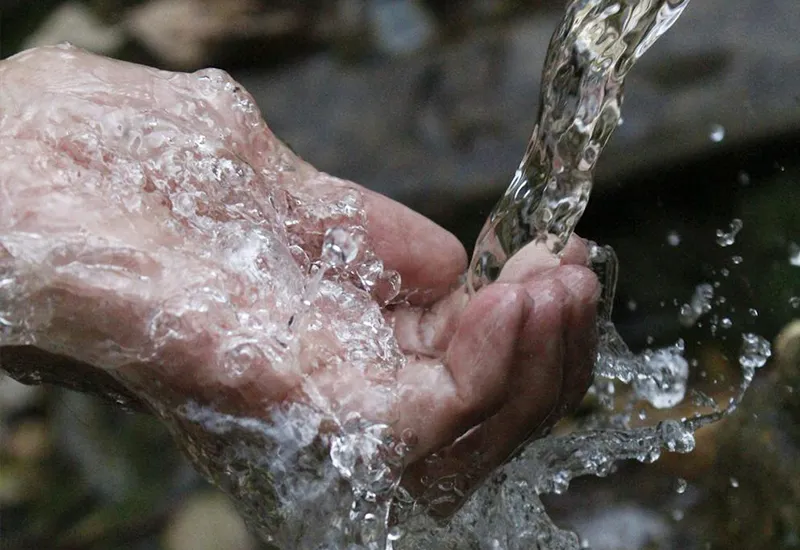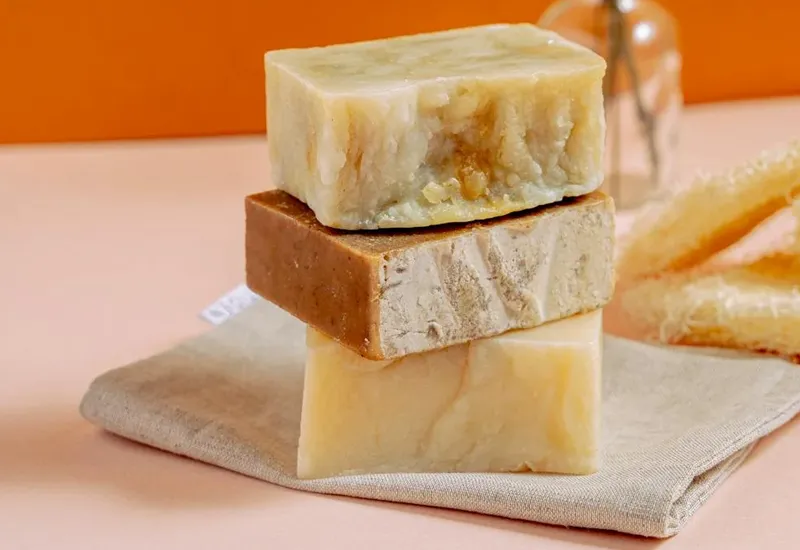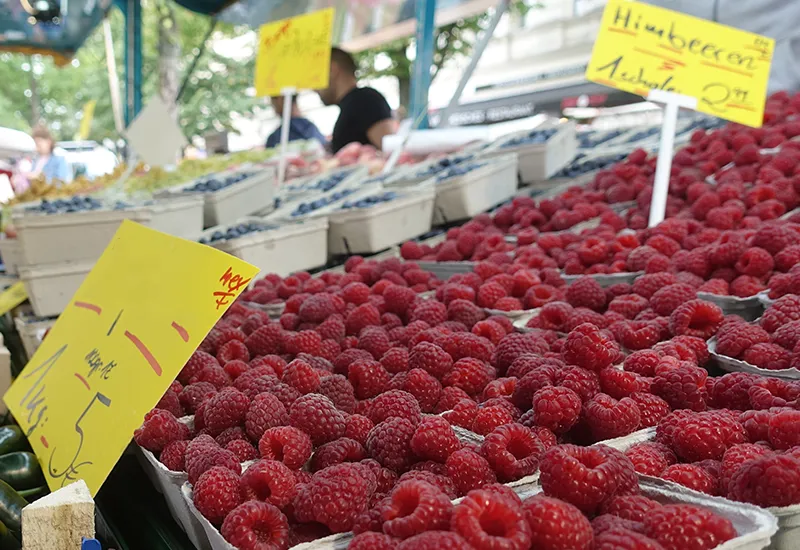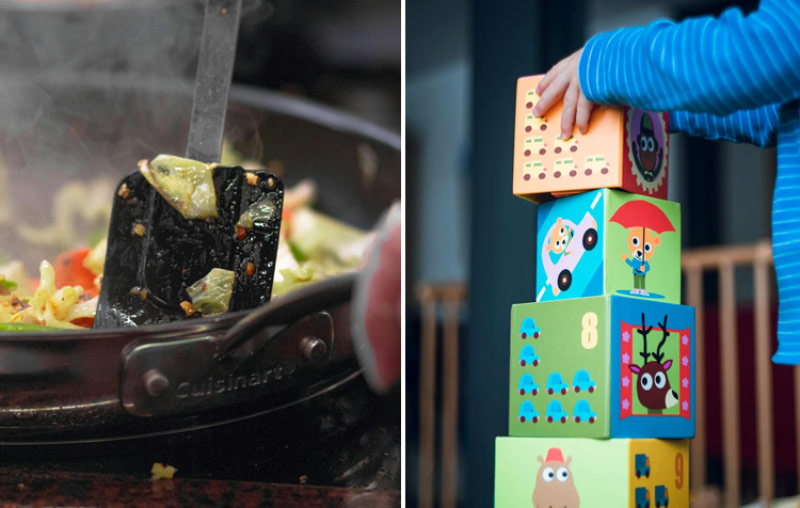Do you want to ban dangerous chemicals from your household? Then you've come to the right place! Whether plasticizers, preservatives or bleaching agents, whether in cleaners, floors, frying pans, toys, sun creams or rain jackets: chemicals are omnipresent in our everyday lives.
However, we are often not even aware of their existence or danger. For example, because they seem harmless, are invisible or because we simply didn't know that the substances in question are considered harmful. Fortunately, it is not that difficult to make your everyday life chemical-free and thus protect both your own health and our environment.
In this article, I will therefore present the most effective tips for avoiding as many toxic or otherwise dangerous chemicals in your household as possible. Let's go!
Reasons: Why less chemistry in everyday life?

Chemicals in everyday products are often a burden not only for us humans, but also for the environment. Many of the substances that are harmful to health and the environment are released into the natural environment via wastewater and can cause serious damage there.
To precisely determine the chemical concentration of a particular substance, the so-called Titration for use. The process shows us that even the smallest quantities of chemicals can be detected in our products. However small they may be, they can accumulate with regular use and have a harmful effect.
Here I have you once the most important motifs for reducing chemicals in the household, including a brief explanation. As a little extra motivation for implementing the following tips, so to speak.
Chemicals are harmful to our health
Parabens, phthalates, formaldehyde, pesticide residues... many chemical additives are found in everyday items such as cosmetics, cleaning products, food and clothing and are harmful to our bodies. For example, they are combined with Allergies, skin irritations, hormonal disorders or even Cancer associated.
So by allowing fewer chemicals in your everyday life, you minimize the risk of illness and protects your long-term health - and that of your children and pets. A natural living environment is particularly important for the development of children. So set a positive example.
Chemical toxins destroy the environment
However, reducing chemical pollutants in your household not only promotes a healthy lifestylebut also protects our planet. This is because many chemicals found in everyday products end up in the environment sooner or later.
Would you like a few examples? Microplastics from clothing and cosmetics pollutes the oceans and reaches the world's waters via household drains, among other things. Chemical UV filter from the sun creams for beach vacations accelerate the Coral mortality. And agriculturally used Pesticides such as glyphosate, kill wild bees and destroy the Biodiversity.
Once soil and water have been contaminated with environmental toxins, these are Difficult to dismantle. As the Toxins also enter our food chain we are not only harming the animal and plant world, but ultimately also ourselves. Avoiding chemicals in everyday life therefore helps both your health and, above all, our planet.
10 tips: How can you avoid chemicals in the household?

To inform youis the first step! After all, this is the only way to bring about a noticeable positive change.
I have listed and explained the most important tips for you here. Integrate them directly or gradually into your desired "Everyday life without chemicals".
1. prefer natural cosmetics
Conventional cosmetic products (e.g. creams, shower gels, toothpastes, scrubs or shampoos) often contain a variety of chemicals that can cause skin irritation or allergies. With certified natural cosmetics, however, as a rule for chemical ingredients of concern waived.
For example, the products in question contain no synthetic fragrances, colorants or preservatives, no petroleum, no parabens, no silicones, no triclosan and no kerosenes. Instead, they are (almost always completely) plant-based manufactured.
If you have your Skin care routine switch to natural cosmetics, you are doing both yourself and the environment a big favor.
2. pay attention to the seal
You can trust your nose and eyes to reduce the amount of chemicals in your everyday life. However, it's even easier to recognize chemical-free products by trustworthy organic or eco-labelssuch as the EU Ecolabel or the Demeter seal.
They guarantee that during production (at least to a large extent) dispenses with the use of harmful chemicals has been. It is particularly worthwhile looking for these labels on food, cosmetics and textiles.
Additional Tip: In addition to quality seals, the results of product tests can also help you!
3. buy second-hand
Buying used has many advantages! This also means that chemical pollutants have often already been washed out, aired out or escaped and that second-hand goods are therefore healthier. This is especially true for clothing!
In addition, the Fast Fashion Industry today to the biggest polluters. For the production of short-lived cheap fashion Aggressive chemicals are often usedthat are discharged into rivers from the world's factories.1
Consciously used clothes (but also second-hand Furniture, cuddly toys and other objects) helps to avoid dangerous chemicals in the household. So just have a look around the flea market or online classifieds.
4. use natural cleaning agents
Conventional cleaning agents often contain chemical ingredients (e.g. Chlorine, ammonia or phosphate) that not only attack the surfaces in your home, but also your respiratory tract and skin.
However, there are numerous alternatives to chemical cleaning agents that are just as effective but much more environmentally and health-friendly. Vinegar, baking powder, citric acid and baking soda for example, are chemical-free natural cleaners that you can use in many areas of your household. They clean thoroughly and are also non-toxic.
Here are a few suitable Further DIY instructions:
Tip: At Baking soda areas of application I have simply put together a few practical applications for you.
5. buy food without packaging

Many foods are packaged in plastic! Often, for example Plastic bottles and can coatings however, from questionable chemicals such as Bisphenol A (BPA)that can pass into our food.
So make sure you buy your food without packaging, i.e. loose and fresh. This works particularly well at the weekly market or in unpackaged stores. In the end, you not only avoid many everyday chemicals, but you also also reduce your plastic waste.
6. use fresh air instead of room fragrances
Allowing fewer chemicals in everyday life can really be so easy! Instead of spraying artificial room fragrances everywhere and lighting scented candlesthat produce harmful nitrogen oxides and particulate matter, you should simply open the window more often to avoid the Improve the indoor climate. 😉
But prefer the Shock ventilation in the morning and eveninginstead of leaving the window tilted all the time. This way, especially in the colder months of the year, you can save a lot of energy.
It is also a good idea to use any harmless and wonderfully fragrant room fragrances. with a few drops of essential oils and a bowl of water or dried herbs and flowers in a small bag.
7. use a water filter
In a chemical-free and preferably natural home a water filter (e.g. osmosis filter) can also do no harm. Tap water in Germany is drinkable and the traces of pollutants are far below the permitted limits - but even the Traces of lead, chlorine, pharmaceutical residues, ammonium and pesticides can be contained as far as possible.
Tip: How you Make tap water tastier and more excitingby the way, I've put together another article for you. Take a look!
8. rely on natural materials
When choosing furniture, carpets, textiles or baskets, you should specifically look for products made from natural materials such as Wood, cotton or seaweed set. They contain less to no chemicals.
Especially with things that come into direct contact with your skin, such as Bed linen or clothingyou should definitely take this tip to heart. Among other things, to specifically prevent skin irritations or allergic reactions.
Also rely on Plant-based paints and varnishes without so-called VOCs (volatile organic compounds) and swap Teflon pans for Ceramic or cast iron pans one.
9. try out homemade cosmetics
Whether Creams, shampoos or lip balms - You can easily and creatively make many cosmetic products yourself with just a few natural ingredients.
The advantage: You have the Full control over the ingredients and can consciously avoid harmful ingredients. At the same time, it's also really fun to try out new recipes and create individual care products.
Here again a few Further contributions and suggestions from my blog:
10. avoid pesticides

Whether Pesticides, herbicides, fungicides, fertilizers with synthetic nutrients, chemical lawn care products, soil conditioners, insect repellents- or algaecides: the use of chemicals is unfortunately not uncommon in conventional gardens.
In a Natural garden however, they have lost nothing. This is because they can not only harm many plants and garden animals, but also your health. The toxic substances also end up in the groundwater.
For less chemicals in your everyday life, it's better to Sustainable pest control (e.g. Attracting ladybugs against aphids) and natural fertilizers (e.g. Compost or coffee grounds).
Less chemicals in everyday life, made easy!
Anyone who is familiar with the many chemicals in our everyday products and tries to keep their own household as natural as possible is faced with an enormous challenge at first glance. But as you have learned here today, there are Many simple and effective optionsto specifically avoid dangerous toxins.
"Nature is the best pharmacy."
Sebastian Kneipp (more at Health Quotes)
By relies on natural alternativesyou are not only doing something good for your health, but also for the environment and biodiversity. It is therefore worth paying conscious attention to the ingredients and materials in your everyday life and making gradual changes. Every little step counts!
Do you have any questions, suggestions or other tips for keeping your household as chemical-free as possible? Then please write a comment below this article.
Stay healthy and environmentally conscious,

PS: Also Cigarettes release toxins into the environment. Everything you need to know about it - and how you can quit smoking in a targeted manneryou can now find out in the linked blog articles!
- Greenpeace e.V.: Textilindustrie vergiftet Gewässer (as of 09.10.2013), available at https://www.greenpeace.de/engagieren/nachhaltiger-leben/textilindustrie-vergiftet-gewaesser. [09.09.2024]. ↩︎






